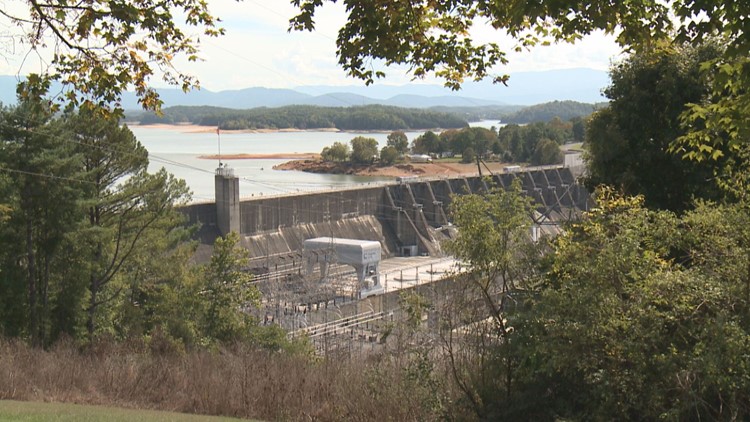(WBIR - Knoxville) Many people in South Carolina are still seeking higher ground with this week's deadly floods and more than a dozen dam failures. That has many people asking if enough was done to maintain the dams in that state and across the country, including East Tennessee where a legal loophole creates a dangerous flooding risk.
The submerged scenes in the Carolinas could be pulled from the pages of a Tennessee history book. For decades, mountains funneled raging and unpredictable waters throughout the Tennessee River Valley for decades, causing annual devastation to property and deaths.
One of the main reasons the Tennessee Valley Authority was formed in 1933 was to tame the Tennessee River's wild waters. TVA continues to maintain the largest dams in the region.
"What's happening in South Carolina and North Carolina due to the rain is a tragedy," said Jim Hopson, TVA spokesperson. "It was an incredible weather system that funneled moisture to create almost a fire-hose effect on that area."
TVA pointed out the dam failures in South Carolina are not the type of strong concrete structures many associate with East Tennessee.
"I think it's important for people to realize the failures in South Carolina are mostly embankments, earthen dikes, things along that line," said Hopson. "We actually do stability checks on all of our structures to make sure they can handle extreme weather conditions similar to what you've seen in the Carolinas."
TVA reels in the wild rivers with more than 40 large dams, plus a team of forecasters that constantly adjusts the water flow to prevent flooding.
"We have people working 24 hours a day, 7 days a week, to prevent that exact type of situation from occurring here in the Tennessee Valley," said Hopson.
As for any danger of a devastating dam break in East Tennessee, it's unlikely to come from regularly-inspected concrete on TVA property. History shows the dams that pose the biggest threat are at private lakes that get classified as "farm ponds."
A unique law in Tennessee gives private ponds and lakes an exemption to state regulations and inspections. A farm pond does not have to be at a farm. It can include private lakes and other bodies of water.
Half of the Tennessee's 12,000 dams are not regulated by the state. That includes 70 dams classified as high-hazard farm ponds. The term "high-hazard" does not refer to the condition of the dam. It means if the dam fails, it is likely to cause fatalities downstream.
Seven counties in East Tennessee have high-hazard farm ponds that are not required to be inspected. High-hazard dams that are regulated by the state receive inspections every year.
In 2010, TDEC managed to get permission to check private dams for safety.
Since the 1970s, there have been more than 40 dam failures in Tennessee. More than 90 percent were unregulated farm ponds.



